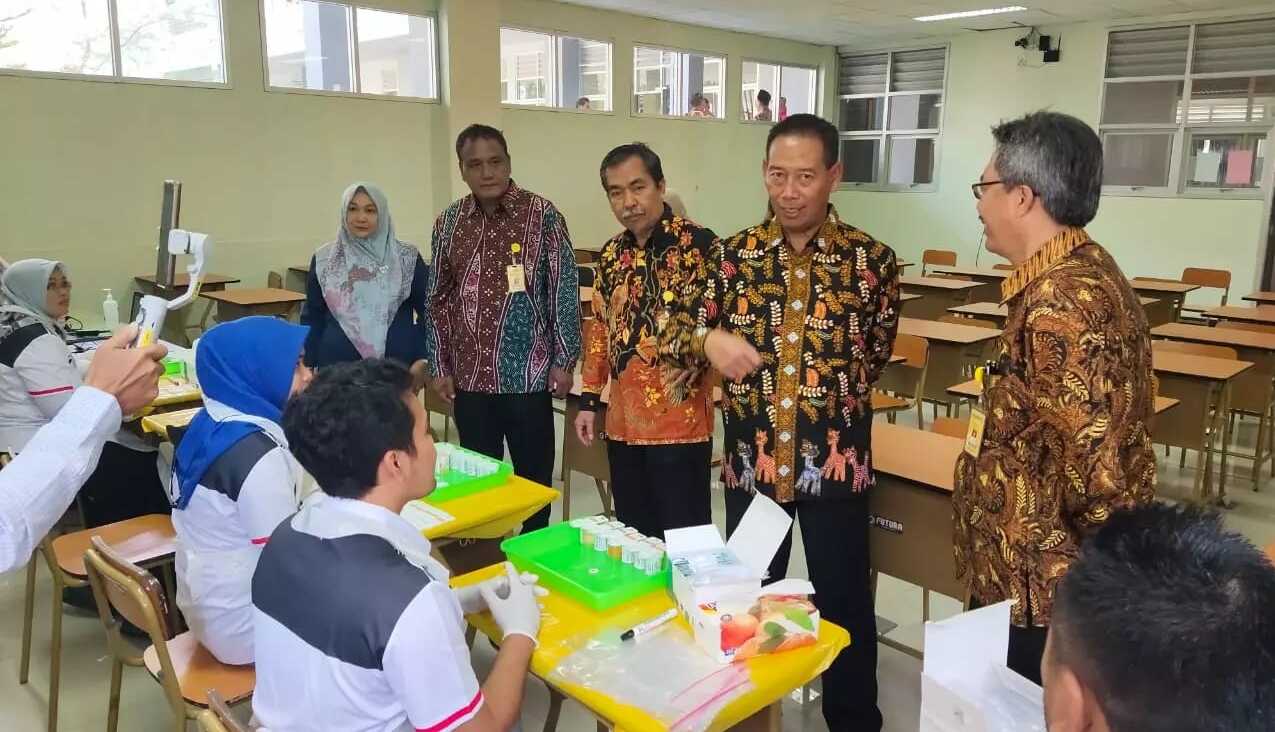Dosen Pancasila dan Guru Pendidikan Kewarganegaraan (PKn) dihadapkan pada tantangan besar untuk menyatukan das solen dan das sein. Dalam konsep hukum, das solen adalah segala sesuatu yang mengharuskan kita untuk berpikir dan bersikap. Das solen berisi aturan, imajinasi, dan visi. Adapaun das sein adalah wujud implementasi dari segala hal yang kejadiannya diatur oleh das sollen. Diakui, das solen dan das sein tidak sama, bahkan kadang sama sekali berlainan.
Demikian salah satu bahasan yang mengemuka dan sarasehan dosen Pancasila dan guru Kewarganegaraan “Kepemimpinan dalam Masyarakat Demokrtasi Berdasarkan Pancasila”, Rabu (3/4) siang tadi di C7 Fakultas Ilmu Sosial (FIS). Sarasehan yang diisi Rektor Unnes Prof. Sudijono Sastroatmodjo, mantan Rektor Unnes Prof. AT Soegito dan mantan Rektor Undip Prof. Eko Budihardjo dihadiri seratusan dosen, guru, dan mahasiswa dari berbagai daerah.
Ketidaksamaan das solen dan das sain dinilai sebagai salah satu persoalan kepemimpinan serius yang terjadi di Tanah Air mutakhir ini. Pancasila yang telah disepakati sebagai acuan mengelola negara belum dapat diimplementasikan dengan baik. Padahal, kepemimpinan Pancasila sudah merangkum berbagai nilai kepemimpinan ideal.
“Kepemimpinan Pancasila disarikan dari Pancasila secara formal dan filosofis sebagai kepemimpinan yang religius, humanis, nasionalis, demokratis, dan adil,” kata Prof. AT Soegito.
Menurutnya, Pancasila sebagai dokumen negara memang baru muncul pada 1 Juni 1945 melalui Ir. Soekarno. Namun sebagai nilai, ia lahir dan mengakar pada kehidupan masyarakat Indonesia ratusan tahun silam.
“Karena itulah, ketika Soekarno akan diberi gelar doktor honoris causa karena dinilai menemukan Pancasila, ia menolak. Ia merasa hanya menggali Pancasila dari kehidupan bangsa. Pancasila dikatakan sebagai sesuatu yang membisu ribuan tahun lalu,” katanya.
Prof. Eko Budihardjo, pengajar arsitektur yang punya perhatian khusus pada bidang kebudayaan itu, punya pandangan sejalan. Kepemimpinan Pancasila, menurutnya, disarikan dari berbagai kebijaksanaan masyarkat Indonesia. Maka tidak heran jika Pancasila juga mengandung hastabrata, konsep kepemimpinan Jawa yang menggambarkan pemimpin dengan delapan sifat alam.
Ia secara khusus menyinggung kepemimpinan di Jawa Tengah, daerah yang menurutnya seperti mozaik. “Jawa Tengah secara kultural terdiri dari beberapa subbudaya, ada Negari Gung, Banyumasan, Pesisir Kulon, dan Pesisir Wetan. Demikian juga secara geografis, ada daerah pantai, pedalaman, dan pegunungan,” katanya.


yang penting bagaimana kita berusaha menjadi sosok seorang pemimpin untuk diri kita sendiri utamanya, bisa meneladani melaksanakan nilai-nilai religius, nasionalis, demokratis dan adil yang terkandung dalam esensi terpenting dari Pancasila…. dan ini sangatlah tidak mudah.., konsep kepemimpinan jawa dengan 8 sifat alam.. luar biasa kalau pemimpin kita bisa begitu, smoga Bapak Bibit dan Bapak Sudijono sukses dalam PILKADA nanti dan bisa menjadi pemimpin ideal di Jawa Tengah, muncul Jokowi Jokowi yang kedua, bahkan pemimpin yang lebih sempurna dari jokowi. amiiin